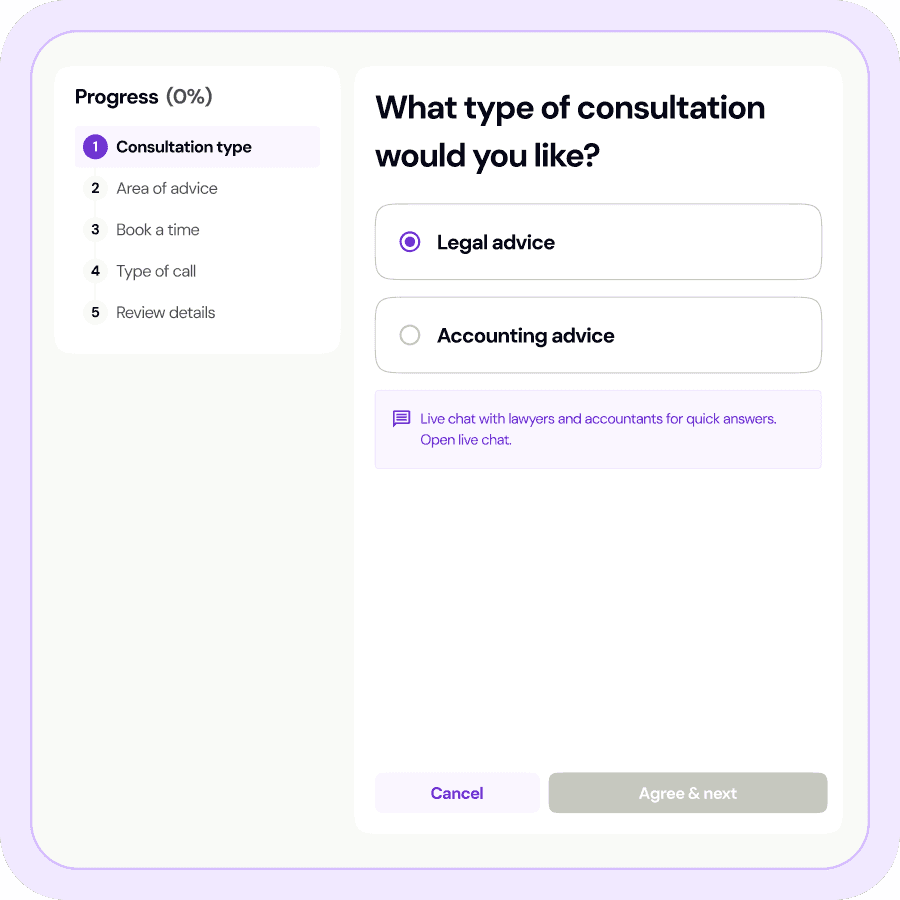Launching your own data entry business is an exciting journey. However, navigating business structures, registration, contracts, and compliance in Australia can be overwhelming, especially as you set up your client roster and processes at the same time.
To help you make a seamless transition to business ownership, we’ve put together this guide. It covers the main legal steps involved in launching a data entry business in Australia, such as choosing the right legal structure, meeting registration requirements, protecting your business with the right documents, and understanding your tax and compliance obligations.
Let’s get started!
Table of Contents
What is data entry and why is it a growing business opportunity?
Data entry refers to the process of inputting, updating, and managing information, such as text, numbers, and other data, into digital systems. This can include updating customer relationship management (CRM) databases, transcribing audio files, entering survey results, managing spreadsheets, or digitising paper records. Data entry tasks are crucial for businesses that require accurate and up-to-date information to operate efficiently.
A wide range of businesses outsource data entry, including real estate agencies, medical practices, law firms, e-commerce stores, and research organisations. The demand for data entry services is rising in Australia due to several factors:
- Increasing digitisation of business operations
- Growth in remote and flexible work arrangements
- The need for accurate data for analytics and compliance
- Businesses seeking to reduce costs by outsourcing non-core tasks
For entrepreneurs, this creates an opportunity to build a service-based business with low overheads. You can start small, often from home, and scale as you secure more clients. Plus, you have the opportunity to specialise in high-value niches like transcription or industry-specific data management.
What legal structure is best for a data entry business?
If the above has convinced you to enter the data entry market, then the first step to setting up your business is to choose the right legal structure. This step is crucial as it affects your tax obligations, liability, and ease of setup.
In Australia, the main options are sole trader, partnership, or registered company. Let’s take a closer look at each set-up.
Sole Trader
Setting up a sole trader is the easiest and cheapest. In this structure, you control and manage the business yourself. However, this also means that you’re personally liable for business debts and legal actions. Additionally, you have to declare all business income on your personal tax return.
Due to its simplicity and minimal start-up costs, most home-based data entry businesses start as sole traders. You can always choose to evolve into a more complex structure later.
Partnership
In a partnership, two or more people run the business together, making it a suitable structure if you want to team up with a co-founder or a friend. Compared to a sole trader, this helps share responsibility for debts and obligations.
While this is still easy to set up, it does require some extra paperwork, like a partnership agreement and a separate tax file number (TFN).
Company
Unlike the two previous structures, a company is a separate legal entity from its owners (shareholders). This creates limited liability, which means that your personal assets are generally protected. It can also offer tax planning advantages as your business grows.
Of course, registering a company is more complex and costly, requiring ASIC registration. Plus, you’ll have more annual reporting obligations, such as Business Activity Statements (BAS) and others.
Don’t know which structure is right for you? Use Lawpath’s free business structure quiz to find the best fit for you.
What legal requirements do you need to start?
To legally operate a data entry business in Australia, you’ll need to meet several requirements:
Business name registration
- If you trade under a name other than your own, you must register it with the Australian Securities and Investments Commission (ASIC).
Australian Business Number (ABN)
- An ABN is required to invoice clients and claim Goods and Services Tax (GST) credits.
- You can apply online via the Australian Business Register or use a platform like Lawpath to register for an ABN.
Tax File Number (TFN)
- Sole traders use their personal TFN; partnerships and companies need a separate TFN.
Local council approvals
- If you’re running the business from home, check with your local council for any zoning or home business restriction.
Data protection responsibilities
- If you handle client or customer information, you must comply with the Privacy Act 1988 and Australian Privacy Principles (APPs).
- A solid privacy policy, secure storage, restricted access, and data disposal protocols are essential, especially when dealing with sensitive or personal information.
What contracts and documents do you need to protect your business?
Legal documents are essential for protecting your interests, setting clear expectations, and building trust with clients.
Service Agreement
A Service Agreement outlines the scope of work, pricing, turnaround times, intellectual property (IP) ownership, and dispute resolution. It protects both you and the client, so make sure to clearly define what data entry services you’ll provide and what’s excluded.
Non-Disclosure Agreement (NDA)
A Non-Disclosure Agreement (NDA) protects client confidentiality and sensitive information. This type of document is essential when handling proprietary or personal data. Also, providing NDAs makes your business look more professional and trustworthy.
Invoice Terms
Invoice and Payment Terms specify payment timelines, methods, and late fees. This helps ensure you get paid on time and sets expectations for clients.
Lawpath offers 500+ legal templates, including NDAs and client agreements, all customisable online to suit your needs. Having these documents in place minimises disputes, protects your reputation, and demonstrates professionalism to clients.
How to find your first clients and scale the business
Your legal structure is in place and you are ready to find your first client. This is often the trickiest part of starting a data entry business, but with a bit of persistence and the right approach, you’ll build momentum.
One of the best ways to start is by signing up for freelancing platforms like Upwork, Airtasker, and Freelancer, where you can quickly find your first gigs. Don’t underestimate the power of LinkedIn, either. Take the time to polish your profile and join small business groups where you can network and let people know what you offer.
It’s also worth reaching out directly to local businesses — think real estate agencies, medical practices, or law firms. Many of them need help with data entry but might not know where to look. A simple email or phone call introducing your services can go a long way.
If you want to stand out (and charge more), consider specialising in a niche like medical transcription, property management, or legal data entry. Specialisation helps you become the go-to person for that industry, making it easier to attract clients who value your expertise.
As you land those first few jobs, always ask for testimonials and referrals. A good word from a happy client is the best marketing you can get, and it helps build your credibility.
Lastly, put together a basic business plan. Outline what services you’ll offer, your pricing, and who your ideal clients are. This clarity will help you market yourself better and make it easier to scale your business as demand grows.
What compliance and tax obligations should you be aware of?
Once you’ve got the ball rolling on your contract, it’s crucial to stay on top of your compliance and tax obligations. Here’s what you need to know and do.
GST registration
If your business turnover exceeds $75,000 per year, you must register for Goods and Services Tax (GST). Once registered, you’ll need to add GST to your invoices and regularly remit this tax to the Australian Taxation Office (ATO). This is a key threshold to monitor as your business grows.
Income declaration
You must declare all income you earn through your data entry business on your tax return, whether you operate as a sole trader, partnership, or company. Even if your business is just starting out or you don’t expect to owe much tax, lodging an annual return is mandatory.
Deductible expenses
You can claim tax deductions for a range of business expenses, including software subscriptions, office equipment, internet costs, and even a portion of your home office expenses if you work from home. Digital products and tools used for your business are also deductible, which can help reduce your taxable income.
Record-keeping
Good record-keeping is non-negotiable. You must keep accurate records of all income, expenses, and invoices for at least five years. This includes receipts, contracts, and any other documents that support your tax claims. While some minor claims can be made without a receipt, you may substantiate any larger deductions in case of an audit.
If you’re registered for GST, you’ll also need to submit a Business Activity Statement (BAS) quarterly, reporting your GST collected and paid.
Other tax considerations
Depending on your business structure and whether you hire staff, you may also need to consider PAYG withholding, superannuation, and state-based taxes.
If you’re unsure which taxes apply to your situation, it’s wise to consult an accountant or use government tools to check your obligations.
Privacy and data protection
If your data entry work involves handling personal information, you may have obligations under the Privacy Act and must comply with APPs. This is especially true if your turnover exceeds $3 million or you work with sensitive data.
Understanding and meeting these compliance requirements will keep your business on the right side of the law and set you up for long-term success.
FAQ
Can I run a data entry business from home?
Absolutely! Many data entry businesses in Australia are run from home, offering flexibility and low overheads. Just check with your local council for any home business restrictions.
Do I need a licence to start a data entry business in Australia?
Generally, you don’t need a specific licence to start a data entry business, but you must register your business and comply with data protection laws.
Running a compliant data entry business
Starting a data entry business in Australia is a practical and scalable opportunity for those seeking flexibility and low start-up costs. By choosing the right legal structure, registering your business, setting up robust contracts, and understanding your compliance obligations, you’ll lay a strong foundation for success.
Don’t forget to leverage Lawpath’s tools and templates to simplify the legal side, so you can focus on growing your client base and delivering great results. Take the first step today and turn your data entry skills into a thriving and legally-compliant business.








